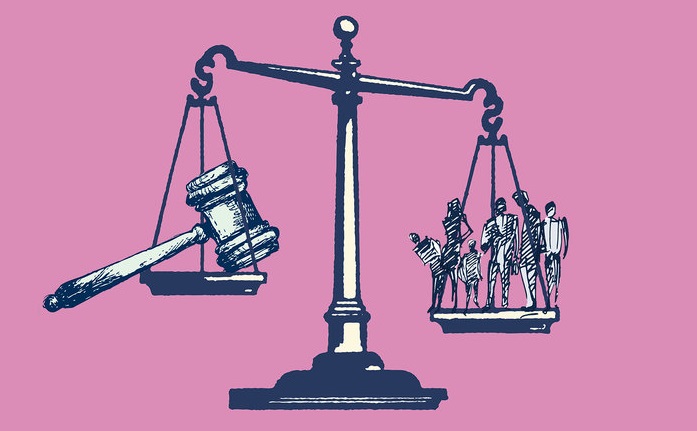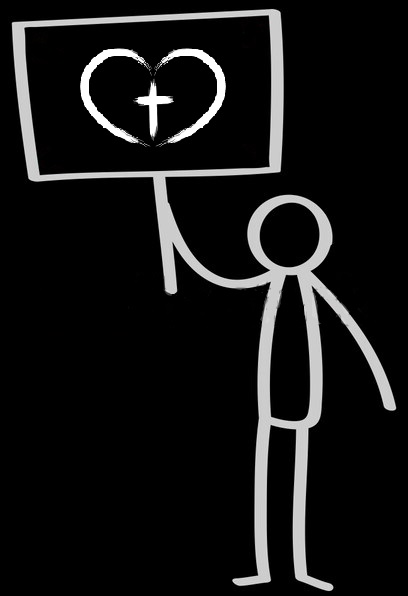Justice, Law, and Morality
By Anthony Casperson
6-27-20
Recently, there have been many calls for legislative change in America. These calls follow the belief that if laws are changed, then the atrocities committed by humanity will end, or at least will decrease.
It’s a thought which assumes that in order to make law-abiding citizens, you merely have to make the right laws. If you want a people to be moral, you enforce morality through legislation. To put this idea simply, moral and just laws make a moral and just nation.
Beyond the fact that this belief denies the tendency of fallen humanity toward selfishness, it forgets one important piece of the law. A law is only as good as the people who obey it. Morality doesn’t come as a result of good legislation.
The very act of obeying the law is a moral decision, which means that morality comes before following the law. Or as I have said several times before (and have repeated more often in the past few weeks), you can’t legislate morality.
Stopping atrocities and abuses of power has less to do with the enforcement of law and more to do with changing the heart of a person. No matter how good the laws of a country are, if the heart of the people is in the wrong place, human selfishness will reign. It’s the heart that is the most important when it comes to treating our fellow human beings justly.
Look at the Old Testament law. It was given by the just and holy God, the epitome of justice who knows the truth of everything. If there is any legislation in all of human history that can be understood to be just and right, any laws that should make the most moral nation, it would be these.
Yet over and over again, the bible (as well as other history) shows that the Israelite nation failed to live up to the justice to which God had called them. Even legislation given directly from the just God couldn’t make people do the right thing. Atrocities and the abuses of power continued all the same as the heart of the people failed to fall in line with God.
And think about this, when Jesus (God enfleshed in humanity) was asked what was the greatest law, what did he choose from the 613 commandments of the Old Testament? Mark 12:29-31 tells us that he said, “Hear, O Israel, the Lord our God, the Lord is one. And you will love the Lord your God with all your heart and with all your soul and with all your mind and with all your strength. And the second is this: You shall love your neighbor as yourself. There is no greater commandment than these.”
The greatest law reminds us that our heart must beat in rhythm with God’s. A desire to put God first, others second, and ourselves after is more important than not killing and not stealing. It’s greater than laws about how to atone after having committed terrible and atrocious acts. It’s the basis for laws against worshipping other gods. And it’s the basis for laws about how to treat other people, whether they are our family, our enemies, or anywhere in between.
The heart of a person, the morality they follow, is more important than any law because the pursuit of selflessness leads us to true justice.
On Jesus’ last night before his gruesome death pierced and pinned by nails onto a wooden cross, he spoke to his closest followers. John 13:34-35 tells us that he gave a new commandment to them, a new way of understanding justice. He said to love one another as he loved us.
How did Jesus love? He selflessly died, sacrificing himself, to make the enemies of God into family. Jesus loved by revealing the truth of God’s justice. He even showed love to Peter (who had claimed to be the last one who would ever leave Jesus, and yet hours later denied ever having met him) by forgiving Peter and returning him to a place of leadership among the followers of Jesus.
It is by selflessness that the atrocities of sin find their end, not by enforcing some new rules and laws.
But why is this so difficult? If we’ve had millennia since the time of Jesus, let alone the giving of the greatest commandment in the Old Testament law, why do injustices still exist? It’s because we so often prefer to do whatever pleases us, rather than that which is in line with true justice. Our selfishness rises again. Our hearts fall out of line with the just God, and we perpetuate the atrocities of sin and death.
We fail, like so many have before, because we as individuals choose to place other people after ourselves. It doesn’t matter if it’s just one person or the entirety of the world. And it can be just one group of people we place on the opposite side as our enemy, or everyone who’s not like us. One instance of failing to selflessly love another causes us to fail justice.
I highly doubt that there’s one person (outside of Jesus) in all of human history who lived this way perfectly. But it should be our mission as followers of Jesus to grow into this selflessness.
But this calling makes us realize one more thing that recent calls for justice have forgotten. The only thing that we can change is how we as individuals act with regard to justice. We can’t change other people to become selflessly just. The best we can do is grow into it ourselves and be an example for others to follow.
While systemic injustice is a huge problem, the solution will only come when individual human hearts follow the example of Jesus, whose selflessness created family rather than enemies.




